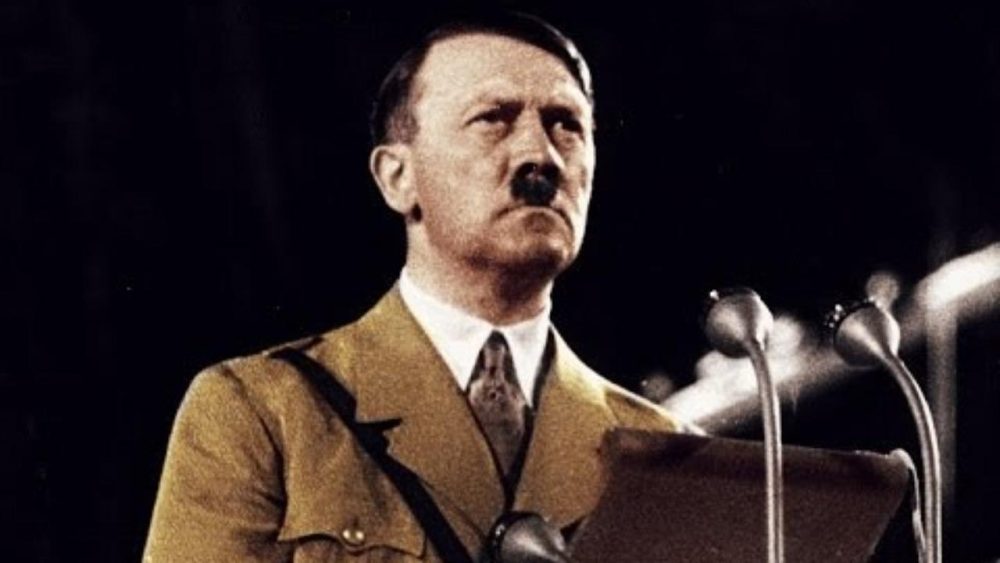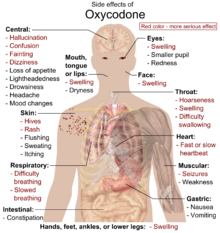What is it about Hitler and theories of Hitler that we find so intriguing?
What is it about the Third Reich that we just can’t seem to get enough of? Perhaps it’s the strange morbid fascination we seem to have with watching people act out of the most horrific and mangled ideologies, all in the name of a particular person’s agenda. The agenda of Adolf Hitler of course, draws people in for this very reason – how did Adolf Hitler manage to rise to the top of the greasy pole in German government, overturn what that government was, and launch Germany into the most destructive conflict in world history?
Such questions have much to do with the personality and, uncomfortable as it may be to admit, the genius, of Adolf Hitler. Whatever we can say about Hitler’s genius, aside from the clear fact that it was a very evil kind of genius, we know from the sources that he was an expert at reading people, discerning their strengths and weaknesses and finding a way to give them what they want, while also leaving them spellbound in his presence.
Morell (standing behind Hitler) was always in the background, and his previously unseen notes shed an unprecedented light on Hitler's relationship with drugs.
The sheer joy which greeted the Germans as Hitler first managed to transform the ruined German economy and then win victory after victory against Germany’s enemies can be explained partly from the fact that such successes were so unexpected. Germany was in dire straits after the Wall Street Crash and the Depression; Germans neither wanted another war nor expected much success to come from it. A quick survey of Hitler’s leading generals demonstrates that very few could possibly have imagined that Germany would have risen to such meteoric, dizzying heights in the way that it did.
It was above the imagination to suppose that Europe’s largest and most professional army in France would be torn asunder, and the struggle of the First World War would be replaced by the lightening shocks of the invasion of the West. We only need to look at the private concerns of Germany’s top generals to see that replacing Hitler, persuading him against the idea of invading the west at all, or searching for some kind of settled peace were all solutions on their minds before the rapid successes of 1940 propelled Germany into world stardom.
Pervitin, that innocent looking tube of meth tablets which were widely available before and during the Nazi regime.
Crystal meth - not exactly what one imagines when thinking of the German army during the Second World War...
Of course we know that while all successes were used as evidence of Hitler’s genius in Nazi society, Hitler was fortunate to have several talented generals by his side. Heinz Guderian, Erwin Rommel and several others achieved the impossible victories, which were later absorbed into the Hitler legend thanks to the pervasive Nazi propaganda. Any victories were attributed to Hitler’s own abilities as commander in chief, and such praise soon went to his head. Hitler infamously demanded to be given total strategic control of the war’s direction, much to the chagrin of his far more competent generals.
Hitler’s hubris and his personal belief in his own legend of infallibility erased some of the genuinely clever things which he had been capable of before the war began. Whether it was an overwhelming arrogance or a poisonous ideology that drove him on, in the war’s early stages, something was definitely driving Hitler onwards. Before he isolated himself and dedicated his attentions only to the pursuit of the war, the adulation which Hitler readily received from the rapturous German crowds satiated the Fuhrer’s inherent need for praise – for a kind of high which only millions of Germans shrieking Sieg Heil! could bring.
Norman Ohler has visited all the dank, gross places where the pill factories used to be. He's visited the archives in Germany and America to get a closer look at documents which have never before been touched upon. What was once a passing reference to Morell's unhealthy relationship with his patient has now become something of a scandal, which Ohler's careful research and attention to detail has helped uncover.
In our latest collaboration, I talk to an author whose internationally bestselling book Blitzed examined what happened to Hitler when the isolation began, when the crowds no longer saw him, and when the Second World War became the Fuhrer’s life. It was at this stage, Norman Ohler says, that the incredible, largely forgotten chapter of Hitler’s life began, and this chapter revolved heavily around drugs.
Norman Ohler presents us not merely with a different side to Adolf Hitler than the strict, self-disciplined authoritarian vegetarian, but also with a different side to German society. Amphetamines, those drugs that are today most commonly associated with meth, could be purchased over the counter in Nazi Germany in a tablet form known as Pervitin. German citizens even as early as the Weimar Republic were taking advantage of the massive growth of pharmaceutical companies, who would produce synthetic opioids as opiates on a scale never before seen in human history. Germans were able to thus access legal highs right through the 1920s, 30s and 40s, and before long, soldiers were also in on the secret of the incredible little pills.
That morbid fascination I mentioned earlier follows through the story here, as the pills become a staple part of German life. By essentially forcing your brain to work at mass capacity by releasing its dopamine stores all in one go, resulting in an intense high which would last as long as 12 hours in some cases. Just as the tablets released such a feeling, they also prevented the body from reverting to normal. Think of the film/television series Limitless, and that is essentially what you would have seen. Except instead of experimental drug NZT that fired your brain to its maximum potential, people were essentially taking meth on a daily basis. The drug was so trendy and favoured, it was even put in chocolate, where a dosage four times that found in the tablet could be yours – talk about a chocolate hit.
"Meth chocolates? How did you know?!"
The revelations about pre-war and wartime society in Germany and the extent to which these magic pills influenced how German citizens acted and reacted under the Nazi regime is astonishing. Soldiers would write home asking for more of the pills from their families, and army doctors would be granted stores of the pills to hand out to their soldiers. Think of the fact that the Germans seemed to be everywhere at all times in their march westwards. Now consider the fact that the pill could keep one going for 12 hours straight, without need of food or sleep, and the possibilities loom into view. In comparison to the French, who were granted three quarters of a bottle of red wine a day, Germans were popping pills to stay awake, to stay focused, and often just before the battle began to give them a boost.
The idea that Germans should keep moving, not stop producing, never rest and always be one step ahead in efficiency was always a staple part of the Nazi ideology of course. It was immensely useful for Germans to avail of a tablet which kept the Nazi ideal reachable, and helped them be at their best. Of course, one could only go for so long without sleep, and a crash from lack of sheer fatigue or sometimes worse penalties could result from pushing one’s body too far. Yet, the net benefits of the pill were simply too good to ignore.
If any of this sounds interesting to you guys, if your eyes are widening at all the questions this throws at the historical presentation of the Germans during the Second World War as unbeatable super soldiers, then I would really recommend having a read of Ohler’s book, or checking out our collaboration. It’s when we get into the line we started this post with – the topic of Hitler’s drug taking – that both Blitzed and the entire picture become still more incredible.
Dr Theodor Morell, Hitler's 'Dr Feelgood'
Most of us who know of Hitler and the Nazi regime are aware of the man Theodor Morell. Morell was Hitler’s personal physician for much of the war, and was by his side every single day for most of the latter phases of the Fuhrer’s life. This makes Morell by definition a very important person for understanding that Fuhrer’s life, and Ohler himself is clear that any biography of Hitler should make a detour through Morell first – the sheer strangeness of the relationship between Fuhrer and physician tells us much about what Hitler was actually like behind the scenes, especially when the war had turned against the Nazis, and the shining promises became dulled.
The laundry list of side effects which the consumption of Oxycodone - given to Hitler as Eukodol - can have on a person.
That scene from Downfall always comes to mind, but there’s so much more to the story than that. This is because, as Ohler reveals, Morell wasn’t merely attending to Hitler’s health, he was regularly injecting Hitler with several varied vials of drugs – everything from vitamins, to the hormones taken from organs of slaughtered animals, to different forms of morphine, to a substance called eukodol. Eukodol is also known as Oxycodone, and was first synthesised – that is, created in a German laboratory, in 1917. At first it was just to kill pain with morphine running in short supply, but, as Morell’s use of it demonstrates, it soon became something of a pleasure device.
As I am no expert on drugs myself, I won’t pretend to know what all the terms relating to the drugs and drug use are. The important thing is, to understand Blitzed I don’t need to understand such terms, because the book is written in such a way as to make the whole topic easily accessible, starting with where the drugs came from, how they came to be used, and then what Theodor ended up using them for. Oxycodone wasn’t the only thing Morell was injecting Hitler with of course; through his magic needle ‘Dr Feelgood’ supplied Hitler and his cronies with a wide range of substances designed to give the likes of Hitler a lift, to cure ailments and boost their mood.
One historian has compared Ohler's findings with the crackpot theory that Hitler escaped and lived to be an old man in South America. In actual fact, Ohler's research is far more watertight than Richard J Evans gives him credit for...
What may be surprising is that it seems as though Hitler came to rely on such treatments, and later in 1944, even enjoyed the occasional cocaine swab to cure his sore nose. This idea calls into question a lot of what we know about both Hitler and the Nazis, but Ohler is clear to emphasise, contrary to what one reviewer may claim, that the rampant drug use by the Fuhrer and his minions does not under any circumstances excuse what these individuals did. Ohler makes no attempt to argue that the Nazis were ‘under the influence’, and thus cannot be held accountable, and we discuss such a touchy subject in our collaboration.
I don’t want to spoil the episode or give away too much of what happens in Blitzed, but if you enjoyed this quick overview and you like the sound of the book, search out Norman Ohler’s bestselling book and read it with an open mind. You may come away with a new appreciation for the Nazi era. The warped, twisted ideological bent of the Nazi regime was in time matched only by the hypocritical additions of its highest ranking members, who all the while told themselves that they were above the common rabble, or those who happened to be addicted to drugs, because as Morell made clear, only those that actually snorted cocaine could possibly be addicted to it, mein Fuhrer…
********
Thanks for reading history friends and patrons. This blog post was to give you an idea of what Norman Ohler and I talked about in the latest collaboration. For the first time, I get not merely a journalist/historian on the show, but also an internationally bestselling one at that! I was very excited and grateful to Ohler for doing me a favour and coming on the show, so make sure you show the love to him by checking out his book, or by visiting his website. Thanks!













